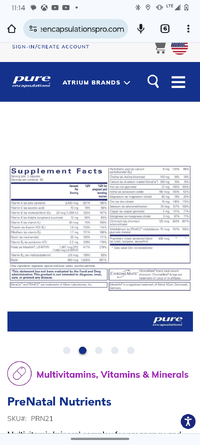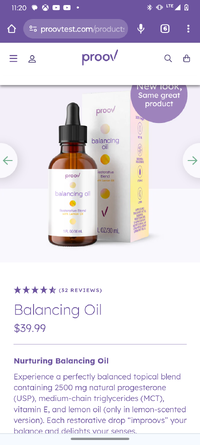Talking about just a glass or two a day for a couple days. I would start slow as mentioned above and see what happens. Maybe just a half glass in morning, and then the same mid afternoon.
Navigation
Install the app
How to install the app on iOS
Follow along with the video below to see how to install our site as a web app on your home screen.
Note: This feature may not be available in some browsers.
More options
-
By using this site you agree to the terms, rules, and privacy policy.
-
Charlie's Restoration Giveaway #2 (Entire Home EMF Mitigation & Protection Along With Personal Protection) - Click Here To Enter
-
Dear Carnivore Dieters, A Muscle Meat Only Diet is Extremely Healing Because it is a Low "vitamin A" Diet. This is Why it Works so Well...
Rest the rest of this post by clicking here
-
The Forum is transitioning to a subscription-based membership model - Click Here To Read
Click Here if you want to upgrade your account
If you were able to post but cannot do so now, send an email to admin at raypeatforum dot com and include your username and we will fix that right up for you.
You are using an out of date browser. It may not display this or other websites correctly.
You should upgrade or use an alternative browser.
You should upgrade or use an alternative browser.
Help wanted with Post Partum Hyperthyroid diagnosis
- Thread starter Tbone107
- Start date
InChristAlone
Member
Have her eat lots of bananas. Very good source of carbs and potassium. I don't prefer OJ I never felt good on OJ (despite trying for yrs). Hyperthyroidism causes low potassium and possible muscle paralysis.
What is in that prenatal? It is probably going to give her alot of unavailable and toxic iron. That would not be helpful in her current situation.Thanks for the response, much appreciate!!
It drops when she stands up if I remember correctly but pretty sporadic I know her rate rate definitely goes up by 30-40 bpm when she stands but ill double check with her. She was actually put into labor due to a pre eclampsia diagnosis on her due date, but her blood pressure was normal when we got to the hospital. Looking back seems it was this issue probably.
She has been taking a pre natal (against my wishes)
She actually tried progesterone for a couple days a couple weeks back to help, but noticed a rash where she was applying and stopped after 3 or 4 days.
What kind of progesterone was she using?
I think Progest-e, orally, following her cycle would be best.
If not back on her cycle, then using during two weeks of the month, during what would be her progesterone part of cycle.
Ray Peat on eclampsia. Maybe you will find something her to help you understand what happened.
I have not read on eclampsia for a while, but if my memory is correct, Ray Peat did not have the same view as the medical establishment.
I have not read on eclampsia for a while, but if my memory is correct, Ray Peat did not have the same view as the medical establishment.
Eclampsia in the Real Organism: A Paradigm of General Distress Applicable in Infants, Adults, Etc.
Eclampsia in the Real Organism: A Paradigm of General Distress Applicable in Infants, Adults, Etc.
raypeat.com
When energy fails: Edema, heart failure, hypertension, sarcopenia, etc.
The concept of a developmental field is essential for understanding embryology, because things that exist on a scale bigger than molecules and cells govern the functions of the molecules and cells, and the principles of embryology don't arbitrarily stop operating at birth, but can be seen to...
raypeat.com
Toxemia of pregnancy, or preeclampsia, is a state of generalized inflammation, and some of the causes and remedies are known. Despite the predominance of crazy genetic theories of preeclampsia in 20th century medical literature, there was clear evidence (reviewed by Tom Brewer, Douglas Shanklin, and Jay Hodin) that it was caused by malnutrition, and that it could be cured by adequate protein, salt, and calcium.
The old medical practice of restricting salt intake during pregnancy was an important factor in causing it, so it's interesting to look at the effects of salt restriction as a treatment for hypertension.
The pregnant woman's blood volume expands, to permit the supply of energy to match the needs of the embryo. If the blood volume doesn't increase, or if it decreases, as in pregnancy toxemia, her blood pressure will increase. Typically, the decrease of blood volume is accompanied by an increase in the extracellular fluid, edema, resulting from leakage of fluid through the walls of the capillaries, and albumin appears in the urine as it leaks through the capillaries in the kidneys. The amount of blood pumped by the heart, however, is increased in toxemia (Hamilton, 1952), showing that the increased blood pressure is at least partially compensating for the smaller volume of blood.
A similar situation, reduced blood volume and edema, can be seen (Tarazi, 1976) in "essential hypertension," the "unexplained" high blood pressure that occurs more often with increasing age and obesity. At the beginning of "essential hypertension," the amount of blood pumped is usually greater than normal.
In both situations, preeclampsia and essential hypertension, there is an increased amount of aldosterone, an adrenal steroid which allows the kidneys to retain sodium, and to lose potassium and ammonium instead. A restriction of salt in the diet causes more aldosterone to be produced, and increased salt in the diet causes aldosterone to decrease. One effect of aldosterone is to increase the production of a substance called vascular endothelial growth factor, VEGF, or vascular permeability factor, which causes capillaries to become leaky, and causes new blood vessels to grow.
While increased salt in the diet tends to lower both aldosterone and VEGF, reducing the leakiness of blood vessels, sodium also has a direct effect that tends to prevent the leakage of water and albumin out of the blood vessels, helping to maintain the blood volume which is needed to perfuse the kidneys, preventing them from producing signals to increase blood pressure and aldosterone. There is a large amount of albumin in the blood serum, and sodium ions associate with the negative electrical charges on the albumin molecule. This association causes the complex of albumin and sodium to attract a large amount of water, that is to exert osmotic or oncotic pressure. This oncotic pressure causes any excess extracellular water to be attracted into the blood vessels, preventing edema while maintaining the blood volume. When there is too little sodium, the albumin molecule itself easily leaves the blood stream along with the water.
Salt, energy, metabolic rate, and longevity
Despite numerous publications showing that diuretics could cause the edematous problems that they were supposed to remedy, they have been one of the most profitable types of drug. Dietary salt restriction has become a cultural cliche, largely as a consequence of the belief that sodium...
raypeat.com
Tom Brewer, an obstetrician who devoted his career to educating the public about the importance of prenatal nutrition, emphasizing adequate protein (especially milk), calories, and salt, was largely responsible for the gradual abandonment of the low-salt plus diuretics treatment for pregnant women. He explained that sodium, in association with serum albumin, is essential for maintaining blood volume. Without adequate sodium, the serum albumin is unable to keep water from leaving the blood and entering the tissues. The tissues swell as the volume of blood is reduced.
During pregnancy, the reduced blood volume doesn’t adequately nourish and oxygenate the growing fetus, and the reduced circulation to the kidneys causes them to release a signal substance (renin) that causes the blood to circulate faster, under greater pressure. A low salt diet is just one of the things that can reduce kidney circulation and stimulate renin production. Bacterial endotoxin, and other things that cause excessive capillary permeability, edema, or shock-like symptoms, will activate renin secretion.
The blood volume problem isn’t limited to the hypertension of pregnancy toxemia: “Plasma volume is usually lower in patients with essential hypertension than in normal subjects” (Tarazi, 1976).
Several studies of preeclampsia or toxemia of pregnancy showed that supplementing the diet with salt would lower the women’s blood pressure, and prevent the other complications associated with toxemia (Shanklin and Hodin, 1979).
It has been known for many years that decreasing sodium intake causes the body to respond adaptively, increasing the renin-angiotensin-aldosterone system (RAAS). The activation of this system is recognized as a factor in hypertension, kidney disease, heart failure, fibrosis of the heart, and other problems. Sodium restriction also increases serotonin, activity of the sympathetic nervous system, and plasminogen activator inhibitor type-1 (PAI-1), which contributes to the accumulation of clots and is associated with breast and prostate cancer. The sympathetic nervous system becomes hyperactive in preeclampsia (Metsaars, et al., 2006).
Despite the general knowledge of the relation of dietary salt to the RAA system, and its application by Brewer and others to the prevention of pregnancy toxemia, it isn’t common to see the information applied to other problems, such as aging and the stress-related degenerative diseases.
During pregnancy, the reduced blood volume doesn’t adequately nourish and oxygenate the growing fetus, and the reduced circulation to the kidneys causes them to release a signal substance (renin) that causes the blood to circulate faster, under greater pressure. A low salt diet is just one of the things that can reduce kidney circulation and stimulate renin production. Bacterial endotoxin, and other things that cause excessive capillary permeability, edema, or shock-like symptoms, will activate renin secretion.
The blood volume problem isn’t limited to the hypertension of pregnancy toxemia: “Plasma volume is usually lower in patients with essential hypertension than in normal subjects” (Tarazi, 1976).
Several studies of preeclampsia or toxemia of pregnancy showed that supplementing the diet with salt would lower the women’s blood pressure, and prevent the other complications associated with toxemia (Shanklin and Hodin, 1979).
It has been known for many years that decreasing sodium intake causes the body to respond adaptively, increasing the renin-angiotensin-aldosterone system (RAAS). The activation of this system is recognized as a factor in hypertension, kidney disease, heart failure, fibrosis of the heart, and other problems. Sodium restriction also increases serotonin, activity of the sympathetic nervous system, and plasminogen activator inhibitor type-1 (PAI-1), which contributes to the accumulation of clots and is associated with breast and prostate cancer. The sympathetic nervous system becomes hyperactive in preeclampsia (Metsaars, et al., 2006).
Despite the general knowledge of the relation of dietary salt to the RAA system, and its application by Brewer and others to the prevention of pregnancy toxemia, it isn’t common to see the information applied to other problems, such as aging and the stress-related degenerative diseases.
mostlylurking
Member
Others have pointed out the issues with estrogen spiking after childbirth and this may well be the problem and supplemental progesterone would be very helpful.Thanks a ton for the info. I'm going to have her drink homemade cabbage juice a couple times a day along with some thiamine. Also going to have her do inhaled H2 gas from a machine I have daily.
I want to stress the importance of discerning if there is a thiamine deficiency that is exacerbating the problem. Thiamine becomes deficient from hyperthyroidism. Although some cabbage juice for a day of two could resolve the hyperthyroidism, it won't help with a possible thiamine deficiency caused or exacerbated by hyperthyroidism.
Human breast milk contains thiamine; babies need that thiamine. If the thiamine in the breast milk is deficient because the mother is thiamine deficient, serious problems could arise for the baby.
SIDS (sudden infant death syndrome) is believed by many to be the result of a thiamine deficiency.

Sudden Infant Death Syndrome, Autism, and Maternal Thiamine Deficiency- Hormones Matter
Maternal thiamine deficiency impacts infant brainstem development.
 www.hormonesmatter.com
www.hormonesmatter.com
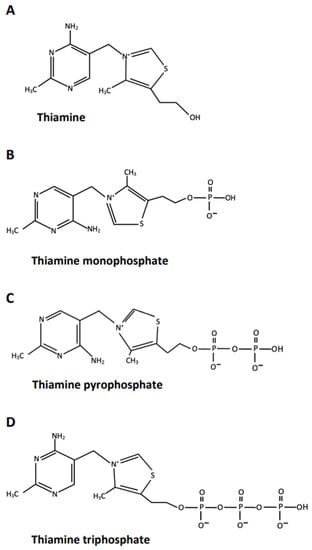
Thiamine as a Possible Neuroprotective Strategy in Neonatal Hypoxic-Ischemic Encephalopathy
On the basis that similar biochemical and histological sequences of events occur in the brain during thiamine deficiency and hypoxia/ischemia related brain damage, we have planned this review to discuss the possible therapeutic role of thiamine and its derivatives in the management of neonatal...
This is the prenatal she was taking through pregnancy and up to yesterday.What is in that prenatal? It is probably going to give her alot of unavailable and toxic iron. That would not be helpful in her current situation.
What kind of progesterone was she using?
I think Progest-e, orally, following her cycle would be best.
If not back on her cycle, then using during two weeks of the month, during what would be her progesterone part of cycle.
Attachments
She tried progesterone a couple of days, but got a rash right on the application site on her stomach each time after applying for 3 days then decided to stop. Seemed to be possibly some sort of autoimmune reaction to something she had been fine with taking pre pregnancyOthers have pointed out the issues with estrogen spiking after childbirth and this may well be the problem and supplemental progesterone would be very helpful.
I want to stress the importance of discerning if there is a thiamine deficiency that is exacerbating the problem. Thiamine becomes deficient from hyperthyroidism. Although some cabbage juice for a day of two could resolve the hyperthyroidism, it won't help with a possible thiamine deficiency caused or exacerbated by hyperthyroidism.
Human breast milk contains thiamine; babies need that thiamine. If the thiamine in the breast milk is deficient because the mother is thiamine deficient, serious problems could arise for the baby.
SIDS (sudden infant death syndrome) is believed by many to be the result of a thiamine deficiency.

Sudden Infant Death Syndrome, Autism, and Maternal Thiamine Deficiency- Hormones Matter
Maternal thiamine deficiency impacts infant brainstem development.www.hormonesmatter.com

Thiamine as a Possible Neuroprotective Strategy in Neonatal Hypoxic-Ischemic Encephalopathy
On the basis that similar biochemical and histological sequences of events occur in the brain during thiamine deficiency and hypoxia/ischemia related brain damage, we have planned this review to discuss the possible therapeutic role of thiamine and its derivatives in the management of neonatal...www.mdpi.com
She's eating one a day along with OJ but will have her ramp up on them as well. ThanksHave her eat lots of bananas. Very good source of carbs and potassium. I don't prefer OJ I never felt good on OJ (despite trying for yrs). Hyperthyroidism causes low potassium and possible muscle paralysis.
This is the progesterone.What is in that prenatal? It is probably going to give her alot of unavailable and toxic iron. That would not be helpful in her current situation.
What kind of progesterone was she using?
I think Progest-e, orally, following her cycle would be best.
If not back on her cycle, then using during two weeks of the month, during what would be her progesterone part of cycle.
Attachments
According to Dr. Peat, MCT can be allergenic to some people. It could be the lemon oil as well.This is the progesterone.
Personally, I have found excellent results with Progest-e.
I use it orally, as well as topically on some skin issues I am trying to resolve.
The patent Dr. Peat had was for the progesterone to be dissolved in pure vitamin e.
If you are interested to try it, you can email kenogen @ gmail.com
Kenogen is the company making Dr. Peats formula.
The owner is Dr. Peats life partner.
I would also read the thiamine info that was posted above.
I was not aware of this during my hyperthyroidism after my pregnancy.
If she is eating a nutritious diet, the multi is probably not necessary.
Dr. Peat always cautioned about harmful excipients in supplements, because of the manufacturing process each undergoes.
Read the info of Dr. Peats I posted in regards to eclampsia. It has to do with salt.
I use Diamond Krystal Kosher salt.
Here is an article about heavy metals in salts.
Recommended list at bottom of article.
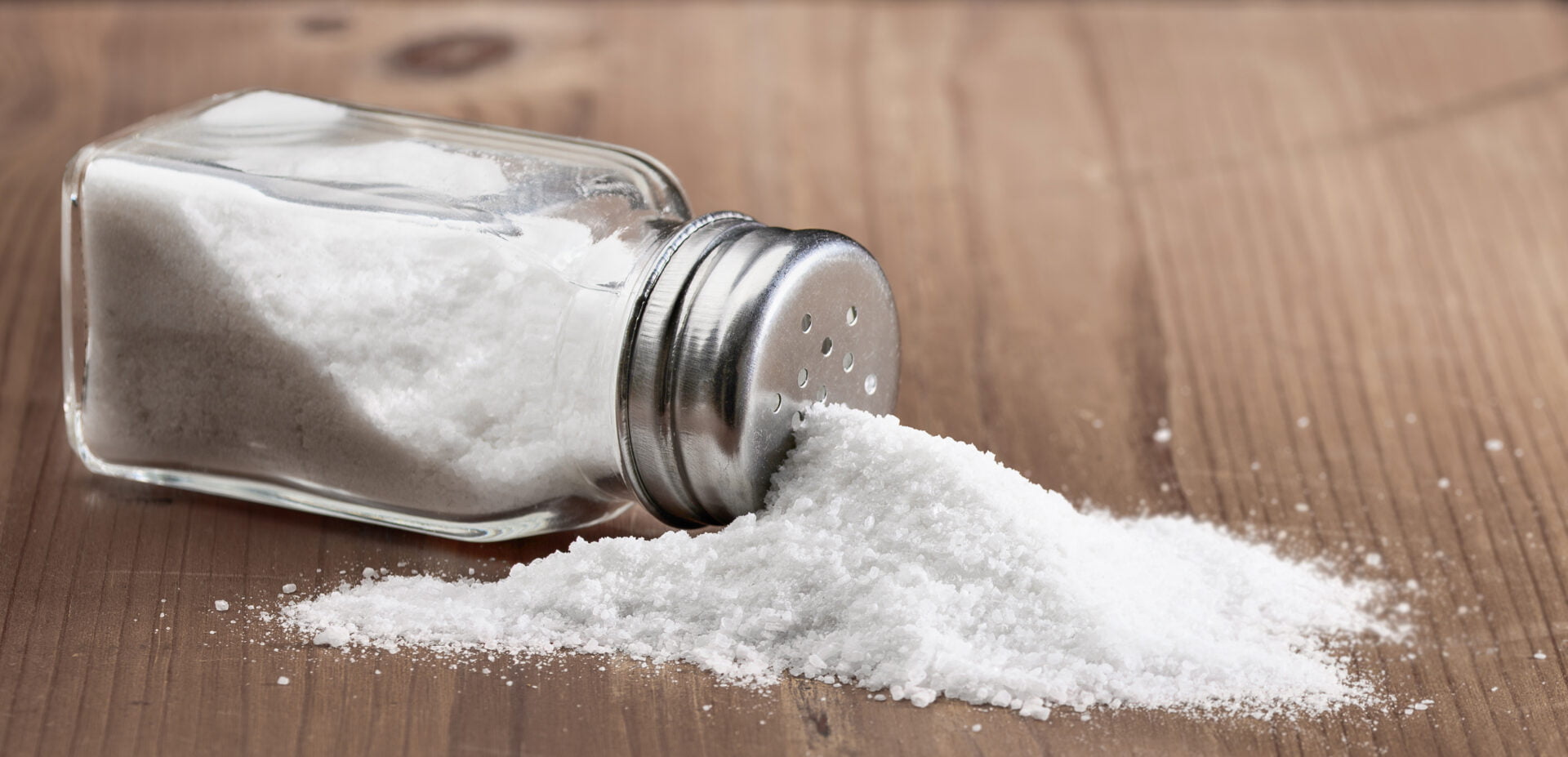
Sea Salt & Himalayan Salt Tested For Heavy Metals Like Lead & Microplastics -- Guide
Are you concerned about the amount of heavy metals like lead, inorganic arsenic, cadmium, mercury, & microplastics in your salt? We tested!
mostlylurking
Member
Progest-E? Or another brand?She tried progesterone a couple of days, but got a rash right on the application site on her stomach each time after applying for 3 days then decided to stop. Seemed to be possibly some sort of autoimmune reaction to something she had been fine with taking pre pregnancy
Ideally, Progest-E should be rubbed into the gums, not put on the skin. The amount absorbed via the gums is a LOT greater. Progest-E is bioidentical progesterone dissolved into vitamin E oil, then it's thinned a little bit with either MCT oil or olive oil. Other brands may have more iffy things added to them. Like lemon oil. Or too much MCT oil. MCT oil can be irritating.
The prenatal vitamins have 1.6mgs of thiamine hcl, which is completely inadequate, like taking nothing actually.
Another brand but will try Dr Peats. In theory supplementing progesterone should be helpful for what she has going on?Progest-E? Or another brand?
Ideally, Progest-E should be rubbed into the gums, not put on the skin. The amount absorbed via the gums is a LOT greater. Progest-E is bioidentical progesterone dissolved into vitamin E oil, then it's thinned a little bit with either MCT oil or olive oil. Other brands may have more iffy things added to them. Like lemon oil. Or too much MCT oil. MCT oil can be irritating.
The prenatal vitamins have 1.6mgs of thiamine hcl, which is completely inadequate, like taking nothing actually.
I've ordered some thiamine hcl powder that she will supplement 2x a day.
mostlylurking
Member
I'd like to suggest that you read through Dr. Costantini's website because there is a lot of good hands on information there regarding taking thiamine hcl.Another brand but will try Dr Peats. In theory supplementing progesterone should be helpful for what she has going on?
I've ordered some thiamine hcl powder that she will supplement 2x a day.
who is Dr. Costantini
therapy
FAQs
In addition to thiamine hcl, there are other thiamine supplements available. One that you may find of interest is the sublingual type. It acts quickly and gets into the bloodstream efficiently. It comes in 100mg tabs that can be easily broken in halves or in fourths. It is easier to learn how to take it sublingually if you start with a half (or fourth) of it. It tastes pretty awful, but if you keep your tongue clamped down against your lower teeth so it doesn't leak out, it's no big deal really. Daphne Bryan wrote a book about B1 and Parkinson's and she talks about the sublingual type of thiamine in it; you might find the book helpful.
regarding the sublingual thiamine:
info about it
how to take it
source
Dr. Derrick Lonsdale likes to recommend TTFD thiamine. My husband takes this type with no problem. However I was unable to tolerate it because my glutathione level was low and TTFD uses glutathione to work so it can lower the level further. It gave me a headache.
Dr. Lonsdale was a pediatrician affiliated with the Cleveland Clinic. He wrote this book which you may find of interest.
mostlylurking
Member
The progesterone goes at some of the problems from another perspective. I wish I had known about it when I had my baby. The flood of estrogen after my baby was born was extreme and caused me lots of problems. I was hypothyroid but didn't know it.Another brand but will try Dr Peats. In theory supplementing progesterone should be helpful for what she has going on?
Dr. Peat focused on the problem of high estrogen and the effects it has on the circulatory system. Although Dr. Peat recommended thiamine (B1) multiple times in his articles, he did not laser focus on it as his main interests were the female hormones and thyroid and nutrition in general. Dr. Peat learned about progesterone's attributes by seeing what it did for his clients. These audio interviews of Dr. Peat about progesterone are very informative:
- Politics & Science: Progesterone Part 1
- Politics & Science: Progesterone Part 2
- Politics & Science: Progesterone Part 3
I found Dr. Lonsdale's articles and his book very helpful. He was a clinician, not a research scientist so he wrote about how he used thiamine to save his patients. His knowledge was more from a hands on perspective. His on the job learning was augmented by research later.
Can't thank you enough for all the information.. she just had a follow up call with her PCP to go over the results and she wants to refer over to an endo for the hyperthyroid piece but wants her on a beta blocker for her heart rate which is about 90 at rest but goes up to 120-130 when she gets up to do anything. Is there anything that can artificially and naturally lower the heart rate outside of what were already trying to try to buy some time for everything to reset? My wife doesn't want to take it but the elevated pulse is really starting to wear on her.The progesterone goes at some of the problems from another perspective. I wish I had known about it when I had my baby. The flood of estrogen after my baby was born was extreme and caused me lots of problems. I was hypothyroid but didn't know it.
Dr. Peat focused on the problem of high estrogen and the effects it has on the circulatory system. Although Dr. Peat recommended thiamine (B1) multiple times in his articles, he did not laser focus on it as his main interests were the female hormones and thyroid and nutrition in general. Dr. Peat learned about progesterone's attributes by seeing what it did for his clients. These audio interviews of Dr. Peat about progesterone are very informative:
- Politics & Science: Progesterone Part 1
- Politics & Science: Progesterone Part 2
- Politics & Science: Progesterone Part 3
I found Dr. Lonsdale's articles and his book very helpful. He was a clinician, not a research scientist so he wrote about how he used thiamine to save his patients. His knowledge was more from a hands on perspective. His on the job learning was augmented by research later.
Starting the thiamine today.
mostlylurking
Member
Thiamine is required for the autonomic nervous system to work properly. Heart rate is part of that. In addition, thiamine is required to make energy at the cellular level in every cell in the body, including the heart.Can't thank you enough for all the information.. she just had a follow up call with her PCP to go over the results and she wants to refer over to an endo for the hyperthyroid piece but wants her on a beta blocker for her heart rate which is about 90 at rest but goes up to 120-130 when she gets up to do anything. Is there anything that can artificially and naturally lower the heart rate outside of what were already trying to try to buy some time for everything to reset? My wife doesn't want to take it but the elevated pulse is really starting to wear on her.
Starting the thiamine today.
links:
Autonomic Nervous System: What It Is, Function & Disorders
Your autonomic nervous system is a network of nerves that handle unconscious tasks like heartbeat and breathing. It’s a key part of your body’s survival processes.
Dysautonomia: Malfunctions in Your Body’s Automatic Functions
Dysautonomia is when automatic body processes don’t work correctly. Learn more about recognizing and managing this condition.
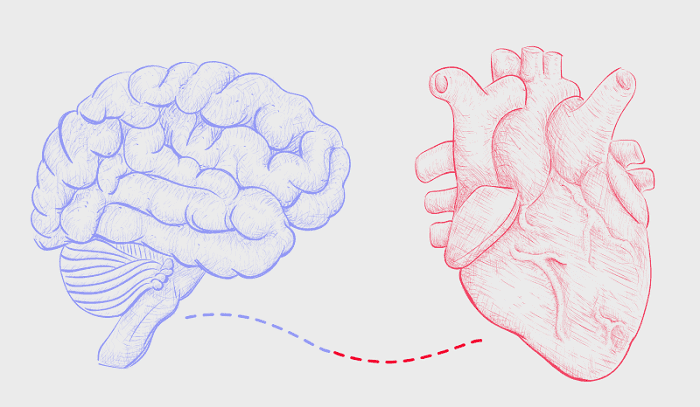
Hypertension, the Autonomic System, and Thiamine - Hormones Matter
It has been shown in the above text that hypoxia and pseudo-hypoxia have virtually identical effects in the area of the brain that is peculiarly sensitive to thiamine deficiency.
 www.hormonesmatter.com
www.hormonesmatter.com
InChristAlone
Member
POTS doesn't require beta blockers. Doctors are so incredibly stupid. Instead of her pulse racing she will feel like passing out how wonderful!
mostlylurking
Member
She could also attempt to discuss the thiamine deficiency concept with her doctor and see what the response might be. It is conceivable that they might have heard of it before and understand the threat it is to the nursing baby.Can't thank you enough for all the information.. she just had a follow up call with her PCP to go over the results and she wants to refer over to an endo for the hyperthyroid piece but wants her on a beta blocker for her heart rate which is about 90 at rest but goes up to 120-130 when she gets up to do anything. Is there anything that can artificially and naturally lower the heart rate outside of what were already trying to try to buy some time for everything to reset? My wife doesn't want to take it but the elevated pulse is really starting to wear on her.
Starting the thiamine today.
EMF Mitigation - Flush Niacin - Big 5 Minerals
Similar threads
- Replies
- 2
- Views
- 1K
- Replies
- 2
- Views
- 4K
- Replies
- 2
- Views
- 1K
- Replies
- 2
- Views
- 2K
- Replies
- 6
- Views
- 1K
- Replies
- 0
- Views
- 1K
- Replies
- 11
- Views
- 3K

